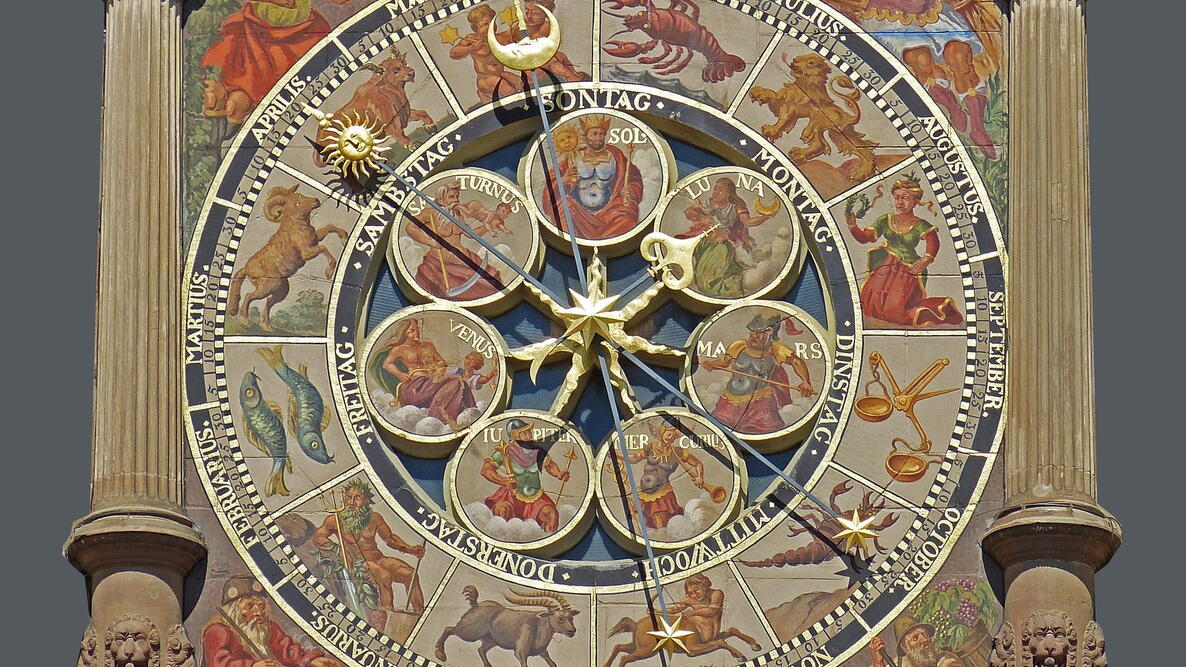Origin of Day Names: Where Did the Days of the Week Come From?
Days of the Week Names: Let's Talk About Sunday-Saturday
For daily wit & wisdom, sign up for the Almanac newsletter.
Body
Where did the names of the days of the week come from? The names originated with the ancient Romans, who used the Latin words for the Sun, the Moon, and the five known planets! Our English names also reflect the influence of the Anglo-Saxons (and other Germanic peoples). Learn all about the origins of the names of the days of the week.
In naming the seven days of the week as checkpoints in time, the ancient Romans chose seven celestial bodies that could be seen with the naked eye: the Sun, the Moon, Mars, Mercury, Venus, Jupiter, and Saturn. For example, Sunday is the Sun’s day, and Monday is the Moon’s day.
Regarding the English names we use today for days of the week, we can also see the influence of the Anglo-Saxons and the old German gods. For example, Wednesday comes from Woden, the Anglo-Saxon king of the gods; in Saxon, the name is Wodnesdaeg. (Now you know why Wednesday is spelled that way!)
See the complete days of the week origins across multiple languages.
The Origins of the Names of the Days of the Week
| English | Latin | French | Italian | Spanish | Saxon |
|---|
| SUNDAY | dies Solis (Sol’s day. Sol was an ancient Roman sun god.) | dimanche (from the Latin for “Lord’s Day”) | domenica (from the Latin for “Lord’s Day”) | domingo (from the Latin for “Lord’s Day”) | Sunnandaeg (Sun’s day. Day of Sun) |
| MONDAY | dies Lunae (Luna’s day. Luna was an ancient Roman moon goddess.) | lundi | lunedì | lunes | Monandaeg
(Moon’s day. Day of Moon.) |
| TUESDAY | dies Martis (Mars’s day. Mars was an ancient Roman god of war.) | mardi | martedì | martes | Tiwesdaeg (Tiw’s day. Tiw was an Anglo-Saxon god of war.) |
| WEDNESDAY | dies Mercurii (Mercury’s day. Mercury was a messenger of the ancient Roman gods, and a god of commerce.) | mercredi | mercoledì | miércoles | Wodnesdaeg (Woden was the Anglo-Saxon king of the gods.) |
| THURSDAY | dies Jovis
(Jupiter’s, or Jove’s, day. Jupiter, or Jove, was the king of the ancient Roman gods, and a god of sky and thunder.) | jeudi | giovedì | jueves | Thursdaeg
(Thor’s day. Thor was a Norse god of thunder, lightning, and storms.) |
| FRIDAY | dies Veneris (Venus’s day. Venus was the ancient Roman goddess of love.) | vendredi | venerdì | viernes | Frigedaeg
(Frigga’s day. Frigg was a Norse goddess of home, marriage, and fertility.) |
| SATURDAY | dies Saturni
(Saturn’s day) | samedi
(from the Latin for “Sabbath”) | sabato
(from the Latin for “Sabbath”) | sábado
(from the Latin for “Sabbath”) | Saeterndaeg
(Saturn’s day. Saturn was an ancient Roman god of fun and feasting.) |
If you enjoyed this article, check out some more calendar facts from the Almanac:
About The Author
Catherine Boeckmann
Catherine Boeckmann loves nature, stargazing, and gardening so it’s not surprising that she and The Old Farmer’s Almanac found each other. She leads digital content for the Almanac website, and is also a certified master gardener in the state of Indiana.
Read More from Catherine Boeckmann
